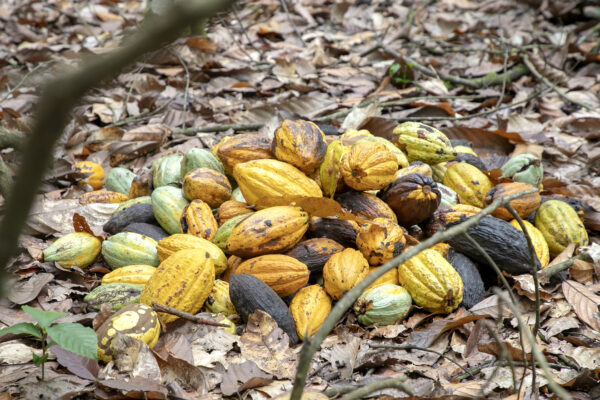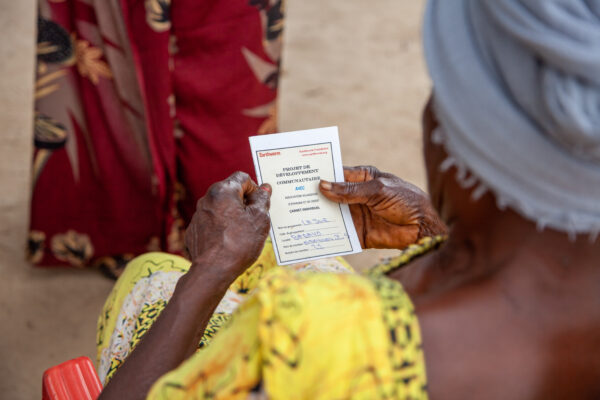Since part one of this series, coronavirus cases around the world have risen to close 5 million. 94 percent of Fortune 1000 companies are facing disrupted supply chains. At the roots of many of these supply chains are farmers.
And while health is the primary concern from this pandemic, hunger and food security are right up there. About 135 million people were already teetering on the edge of hunger. COVID-19 threatens to push them over the edge.
According to the FAO (Food and Agriculture Organisation), there are similarities between our current situation and the 2014 Ebola outbreak in West Africa. Back then, labour shortages and disruptions in agricultural supply chains meant that many farmers in already-risky countries like Liberia couldn’t grow or sell their crops. What little that could be grown and sold was hit by movement restrictions and closing markets. Shortages of goods led to higher commodity prices. Higher prices and lower income – the perfect maelstrom to break the proverbial horses back; leaving people without a most basic necessity – food.
And core to food security is the resilience of farmers. In this second in a series of articles, we look at how some of our teams are continuing to fight for farmers and their wellbeing, given the spectre of COVID-19.
Indonesia
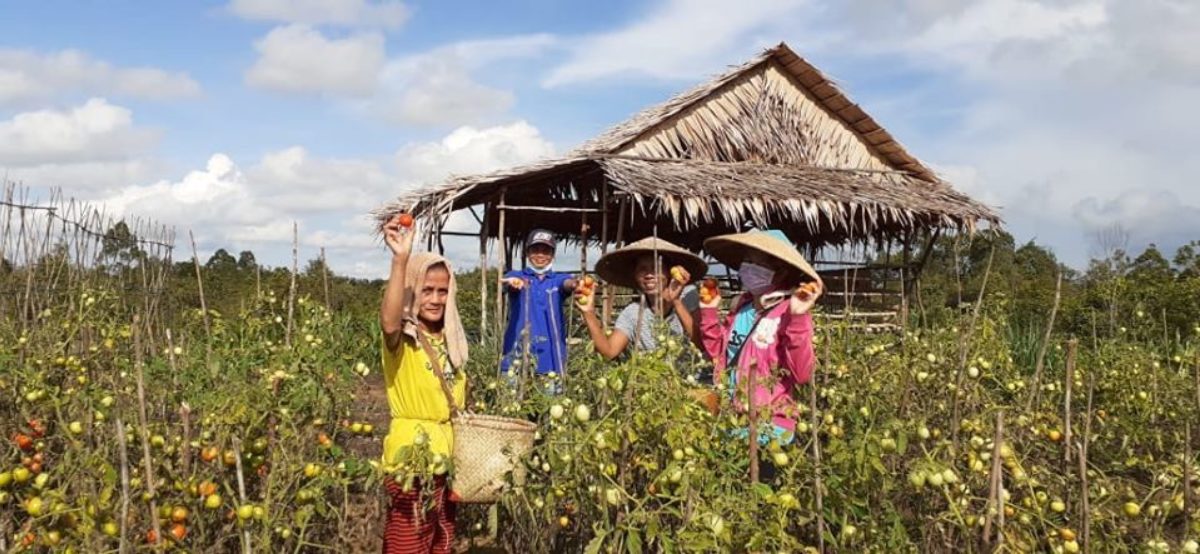
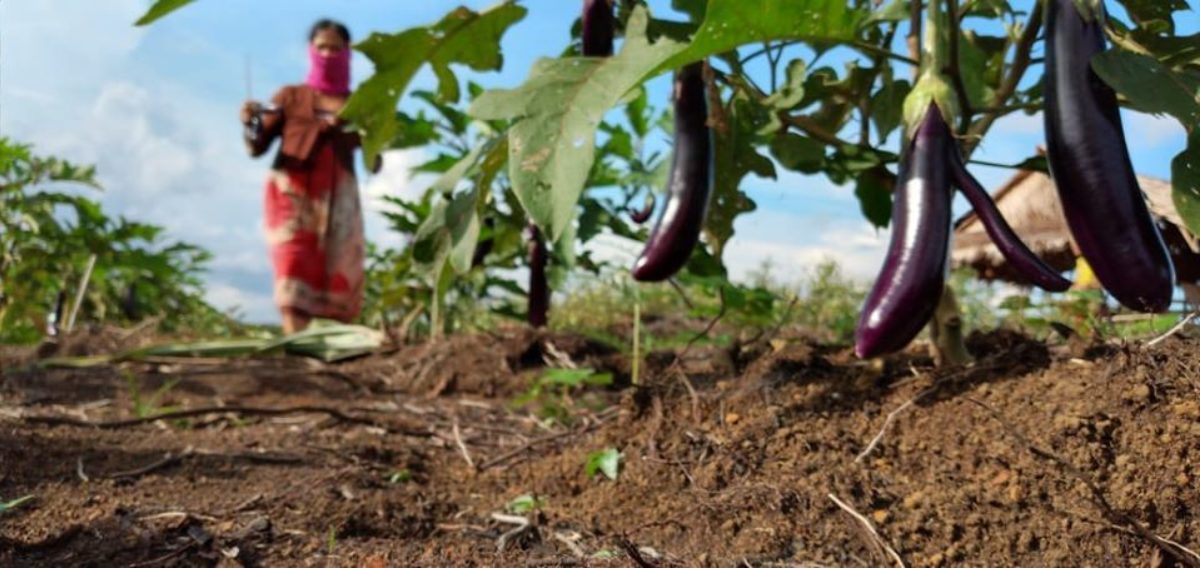
“Facing this pandemic, farmers stay strong,” said Earthworm’s Yulia Hardini. “All their lives, they have dealt with changes. Even when everything seems uncertain, perseverance keeps them moving.”
Many of the farmers we work with plant only oil palm. But the market for palm oil is unstable and unpredictable, she said.
But farmers aren’t the only ones feeling the pain of movement restrictions. As commercial flights and inter-state travel are restricted until June, our field team can’t return home to their families. This is especially painful in the Muslim fasting month of Ramadan, a time that is normally spent with family.
"I've given up (trying to find a way home to Java), because all the roads are closed,” said Kasmujiono from our field team. “Even if we could go home, returning to the field would be difficult. So we'll just focus on our field work, while still looking for opportunities out of this situation."
It’s stressful not being able to go home, said field officer Rozikin. Both Kasmujiono and Rozikin have wives and children waiting for them back home.
“My family still has hope that I can come home,” Rozikin said. “But for now, I’ve yielded to the situation.”
Ivory Coast
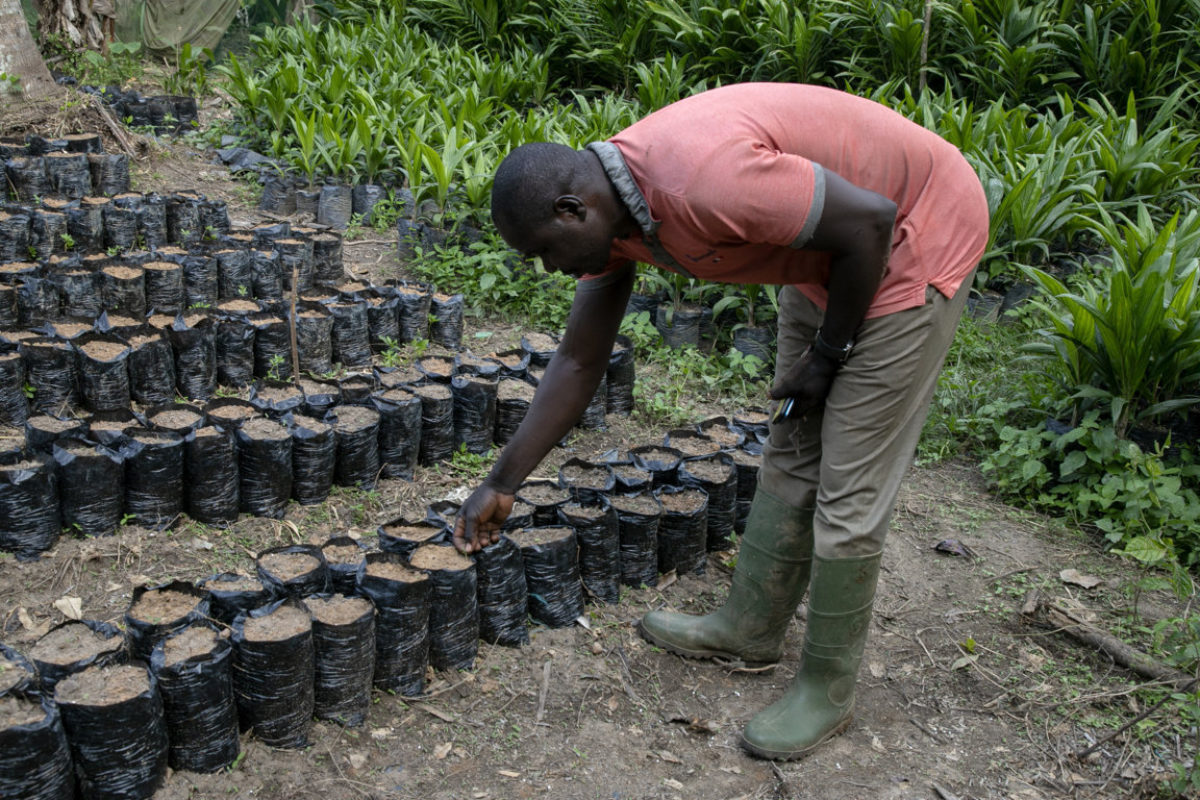
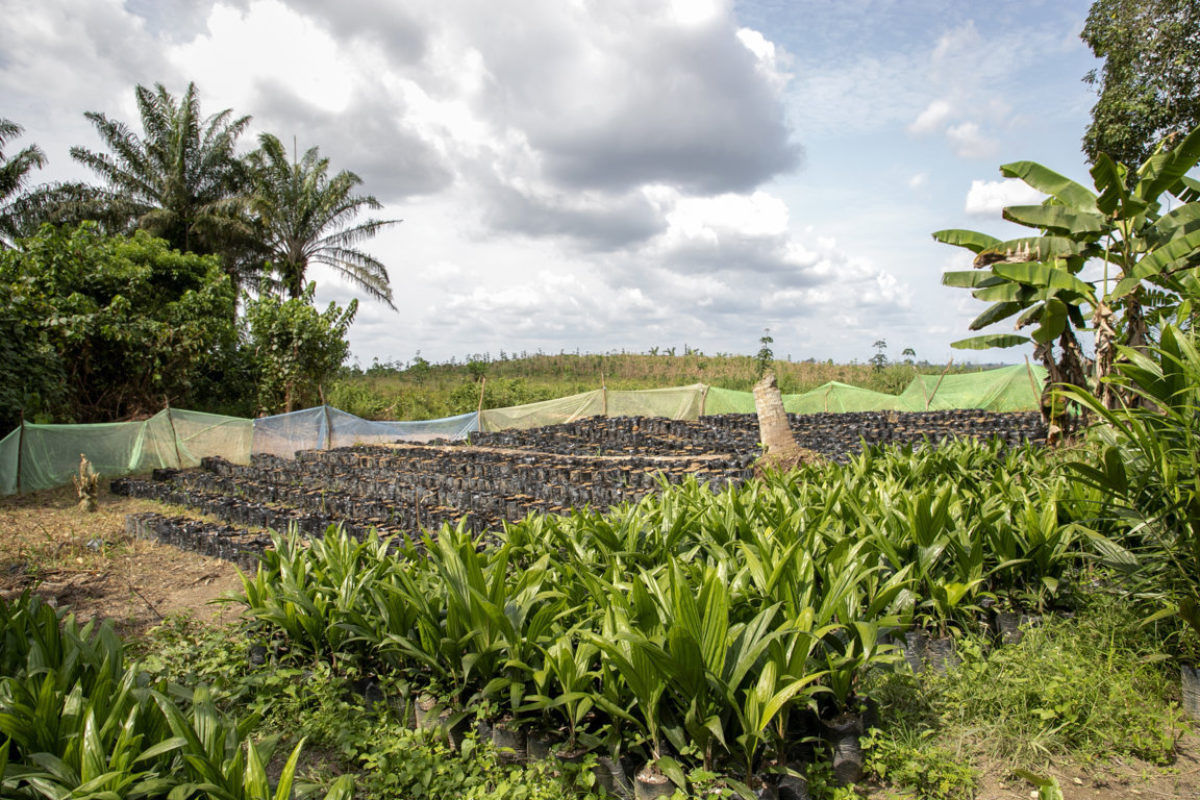
Originally from the north of Ivory Coast, Yeo moved to the west looking for a job in the cocoa and oil palm plantations that share the land with forests and farming communities. After working for another farmer for a time, Yeo saved up enough to buy his own plot of land. It was at this point that we first met him. Realising that he had the entrepreneurial spirit and that there was a shortage of oil palm saplings, we encouraged him start a nursery. He now sells young palms to other farmers and has since started rearing chickens and sheep as well.
“While everyone was hit financially, Yeo was better prepared than many of the other farmers we have been speaking to,” said Emmanuel Dabo from our team in Ivory Coast.
Just like the farmers, our field team in Soubré is experiencing the pangs of COVID-19 – forced from the field to their homes. While there has been one COVID-19 case in Soubré to date, the quarantine and gasoline shortages mean that farmers can’t transport their produce.
“While we are stuck at home, we are trying to help farmers like Yeo through the phone,” said Stéphane Yoboué from our field team.
For those who have weak internet connections, we are going to launch a WhatsApp radio station, said Gerome Tokpa, our country head in Ivory Coast.
“This will allow us to produce content that is easily downloadable and can reach masses of rural people,” he said.
Malaysia
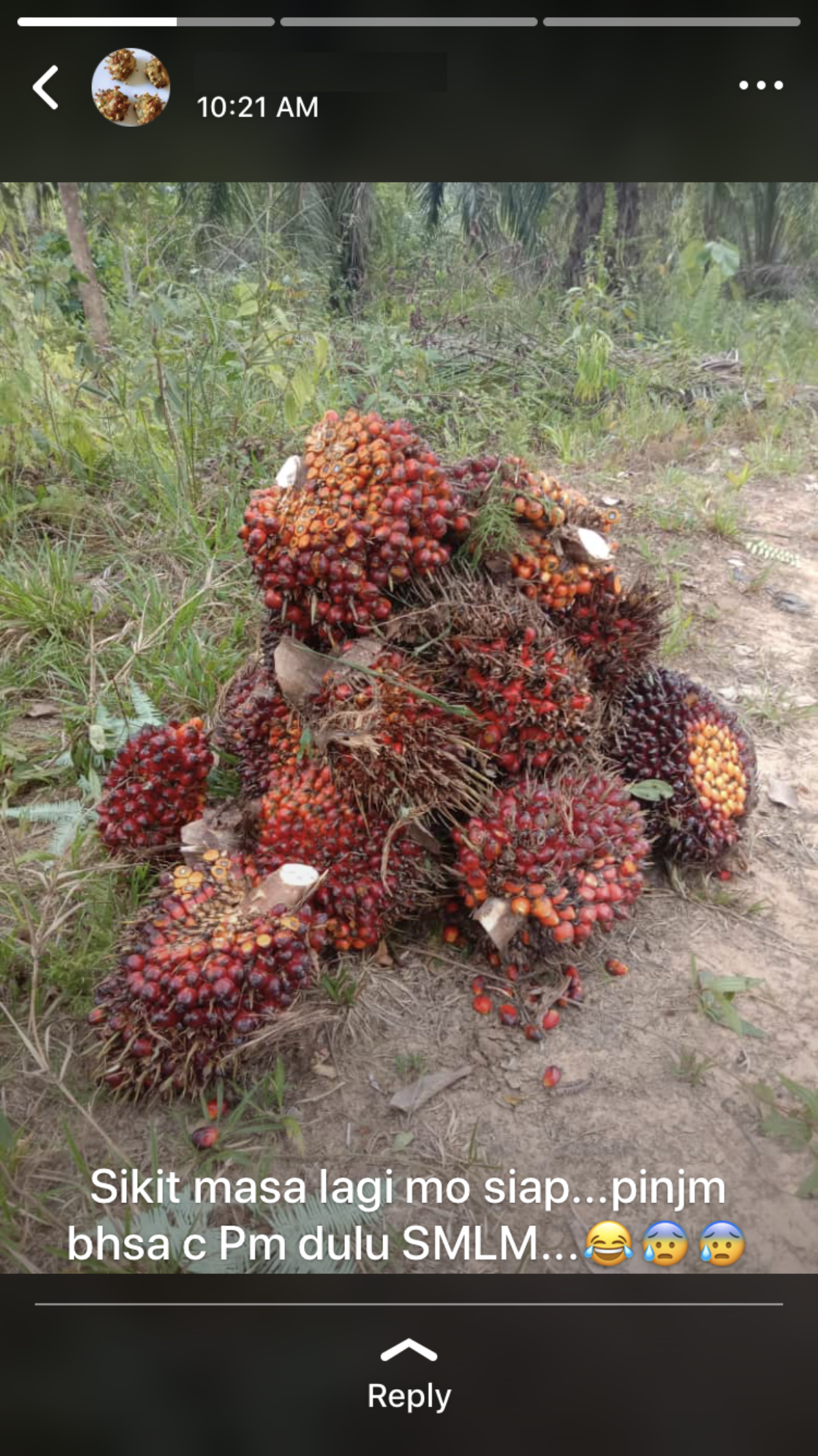
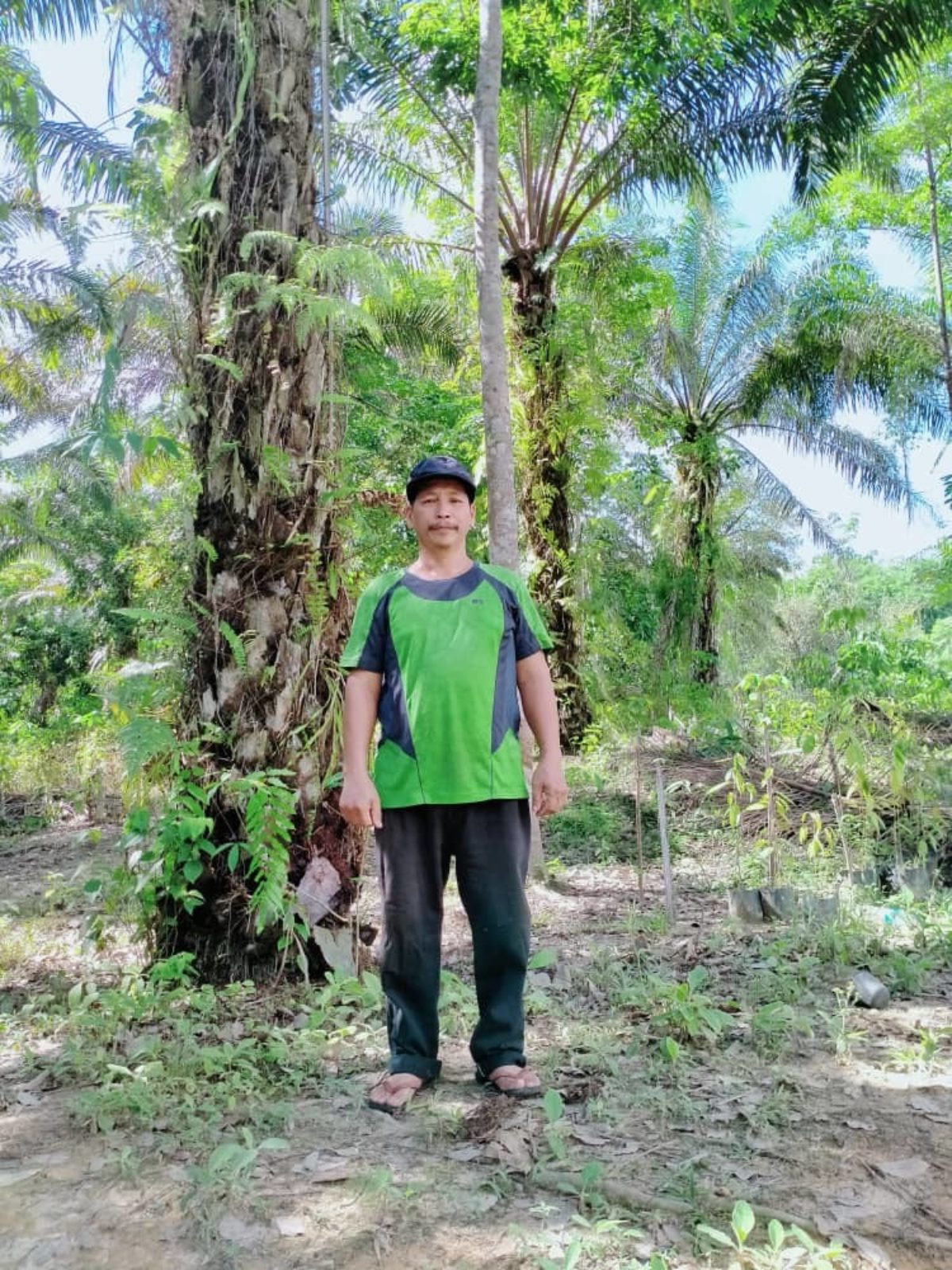
Kubil bin Madili is a 52-year-old farmer who owns about 2.25 hectares of land in Ulu Muanad, Beluran, Sabah. He lives there with his wife, Norsiah binti Boning, and eight children, who all depend on the oil palm they grow on their small plot of land.
Kubil sells palm fruits to nearby mills, while his wife makes a little money on the side selling vegetables she plants. They both make around the minimum wage in Malaysia.
But his meagre earnings have been hit by movement restrictions and palm oil mills running at a lower capacity. Even his wife’s vegetable sales have been affected because markets are closed, leaving Kubil and his family struggling to pay their bills and loans.
“Because of the crisis, many farmers are starting to think about what they will eat and how to earn extra income,” said Dehya Mahadin from our field team in Beluran district. “With our help, some have started planting crops like cassava, corn and other vegetables. Others are building swiftlet bird houses, as demand from China for edible bird’s nests is increasing thanks to its perceived health benefits.”
With the Malaysian Palm Oil Board (MPOB), we are helping farmers like Kubil apply for government aid meant to ease the burden of low income groups. So far, about 200 farmers in the area have received a one-time cash stipend to tide them through these difficult times.
We have also been helping farmers get travel permissions. This allows them safe passage through police blockades when travelling to palm oil mills to sell their produce.
“I always advise farmers to be patient during this challenging time and fight COVID-19 until the situation goes back to normal,” said field officer Lakarim Lanika.
The coronavirus has laid bare just how fragile our food systems and the people who work in them are. While movement restrictions in many parts of the world have recently been eased, it’s not that long ago that billions of dollars of food were going to waste because of a food service industry shutdown in the USA. Which goes to show that now, more than ever, farmers need support.
As FAO Chief Economist Maximo Torero Cullen so aptly put it, “Just as frontline healthcare workers are hailed as heroes, those who staff the critical infrastructure of our food system deserve recognition and gratitude, not stigma and neglect, during these trying times.”
